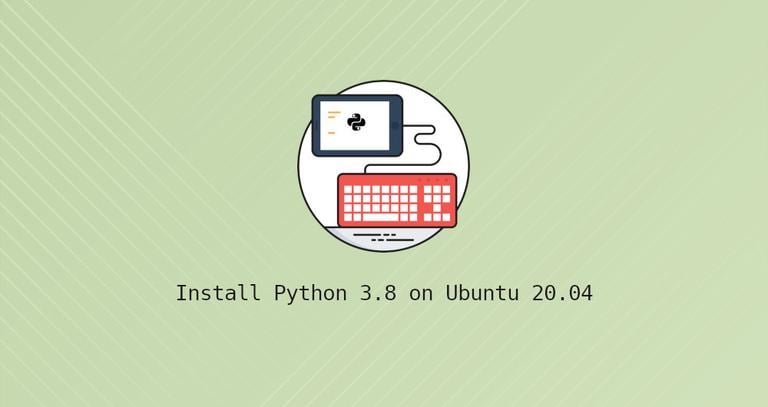How to Install Python 3.9 on Ubuntu 20.04
Updated on
•6 min read

Python is one of the world’s most popular programming languages. It is a versatile language used to build all kinds of applications, from simple scripts to complex machine learning algorithms. With its simple and easy to learn syntax, Python is a popular choice for beginners and experienced developers.
Python 3.9 is the latest major release of the Python language. It includes many new features such as new dict operators, new str functions, support for IANA time zone, and more .
In this article, we’ll show you two ways to install Python 3.9 on Ubuntu 20.04. The first option is to install the package from the deadsnakes PPA, and the second one is to build Python 3.9 from the source code.
The same steps apply for Ubuntu 18.04 and all Ubuntu-based distributions, including Kubuntu, Linux Mint, and Elementary OS.
Installing Python 3.9 on Ubuntu with Apt
Installing Python 3.9 on Ubuntu with apt is a relatively straightforward process and takes only a few minutes to complete.
Update the packages list and install the prerequisites:
sudo apt updatesudo apt install software-properties-commonAdd the deadsnakes PPA to your system’s sources list:
sudo add-apt-repository ppa:deadsnakes/ppaWhen prompted, press
[Enter]to continue.Once the repository is enabled, you can install Python 3.9 by executing:
sudo apt install python3.9Verify that the installation was successful by typing:
python3.9 --versionPython 3.9.1+
That’s it. Python 3.9 is installed on your Ubuntu, and you can start using it.
Installing Python 3.9 on Ubuntu from Source
Compiling Python from the source allows you to install the latest Python version and customize the build options. However, you won’t be able to maintain your Python installation through the apt package manager.
The following steps explain how to compile Python 3.9 from the source:
Install the dependencies necessary to build Python:
sudo apt updatesudo apt install build-essential zlib1g-dev libncurses5-dev libgdbm-dev libnss3-dev libssl-dev libreadline-dev libffi-dev libsqlite3-dev wget libbz2-devDownload the latest release’s source code from the Python download page with
wget:wget https://www.python.org/ftp/python/3.9.1/Python-3.9.1.tgzOnce the download is complete, extract the gzipped archive :
tar -xf Python-3.9.1.tgzSwitch to the Python source directory and run the
configurescript, which performs a number of checks to make sure all of the dependencies on your system are present:cd Python-3.9.1./configure --enable-optimizationsThe
--enable-optimizationsoption optimizes the Python binary by running multiple tests. This makes the build process slower.Start the Python 3.9 build process:
make -j 12For faster build time, modify the
-jto correspond to the number of cores in your processor. You can find the number by typingnproc.When the build process is complete, install the Python binaries by typing:
sudo make altinstallWe’re using
altinstallinstead ofinstallbecause later will overwrite the default system python3 binary.
That’s it. Python 3.9 has been installed and ready to be used. To verify it, type:
python3.9 --versionThe output should show the Python version:
Python 3.9.1Conclusion
Python 3.9 is not available in the standard Ubuntu 20.04 repositories.
We’ve shown you how to install Python 3.9 on your 20.04 machine. You can now start developing your Python 3.9 project.
Next, you can read about How to Use Pip and How to Create Python Virtual Environments for different Python projects.
If you have any questions or feedback, feel free to comment below.


